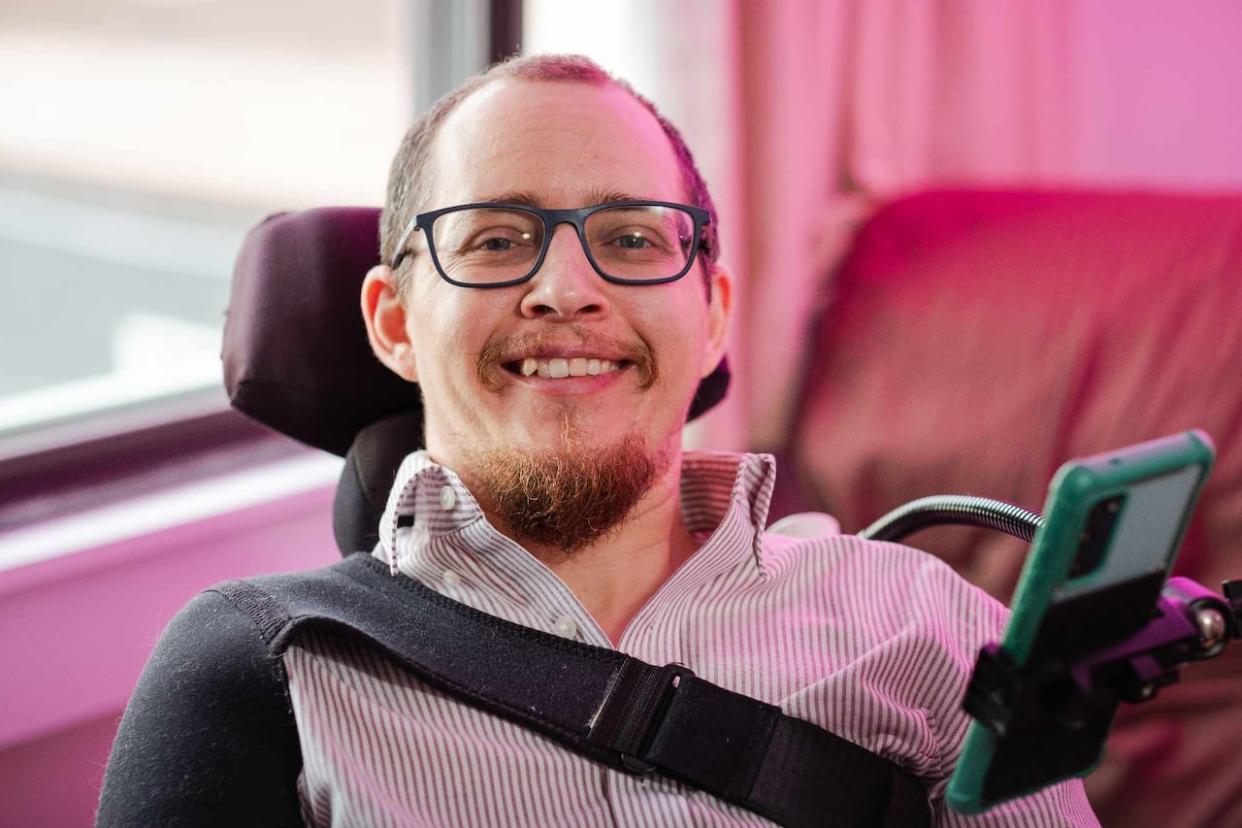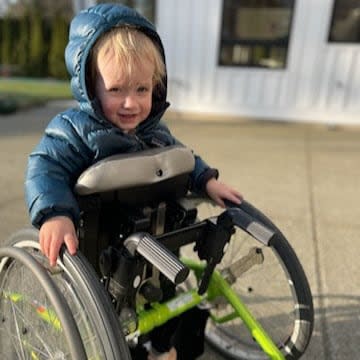Disagreement over diagnosis means Nova Scotian may need $80K for spinal surgery

Halifax resident Andrew Jantzen is trying to receive spinal surgery that could be life-changing.
However, they may need to pay out-of-pocket and raise about $80,000 Cdn to pay for the procedure in the U.S., and cover an accessible hotel and other expenses, because a Nova Scotia specialist doesn't support the diagnosis of a U.S. neurosurgeon.
Jantzen was diagnosed with tethered cord syndrome — a neurological disorder which limits the movement of the spinal cord within the spinal column — by a professor at Brown University in Rhode Island with expertise on the syndrome.
Due to the condition, Jantzen uses a power wheelchair and has a feeding tube.
"There's the potential that … [this surgery] would treat a lot of those symptoms and make it so that I could walk again, that I could use my bladder again," Jantzen said, "and … not need as nearly as much support hopefully as I do now."
The Department of Health and Wellness said there is expertise to diagnose tethered cord syndrome within Nova Scotia.
However, Jantzen said they can't access care or funding through MSI, the province's insurance program because the specialist he was referred to doesn't agree with the diagnosis, and instead believes they suffer from mechanical back pain.
In Nova Scotia, Hospital Insurance Regulations require that a resident be pre-approved in writing for out-of-province treatment, with the referral coming from a Nova Scotia specialist who has treated the resident.
B.C. child had successful surgery in Florida
In 2022, CBC News reported on a man from Glace Bay, N.S., who spent $65,000 on a successful surgery for tethered cord after finally being diagnosed in the U.S. by the same doctor who detected the syndrome in Jantzen.
And he's not the only person who has had positive outcomes.
Nikki Holekamp, who lives in British Columbia, said her now two-year-old son, Asher, has made "huge gains" since having surgery for tethered cord last November in Florida.
"He crawled … like 10 feet across the floor for the first time in his whole life like two days after," Holekamp said. Before the procedure Asher had no movement in his legs, but now he can walk with the support of a walker.
Holekamp said Asher recovered very quickly from the surgery and spent one day in the hospital.

Following surgery for tethered cord syndrome, Nikki Holekamp's son, Asher, can now crawl, squat and extend his knees. (Submitted by Nikki Holekamp)
In an email to CBC News, the Department of Health didn't address a question about how the province determines whether there is sufficient expertise and resources to diagnose a condition in-province.
But spokesperson Marla MacInnis said "all neurological and spinal cord injuries are taken seriously in Nova Scotia."
Her statement said there is a "dedicated team of clinicians who specialize in neurology and spinal cord injuries at Nova Scotia Health" who provide care based on their education, research and best practices.
Jantzen has asked the Nova Scotia specialist to seek a second opinion and is awaiting a response.
MORE TOP STORIES


